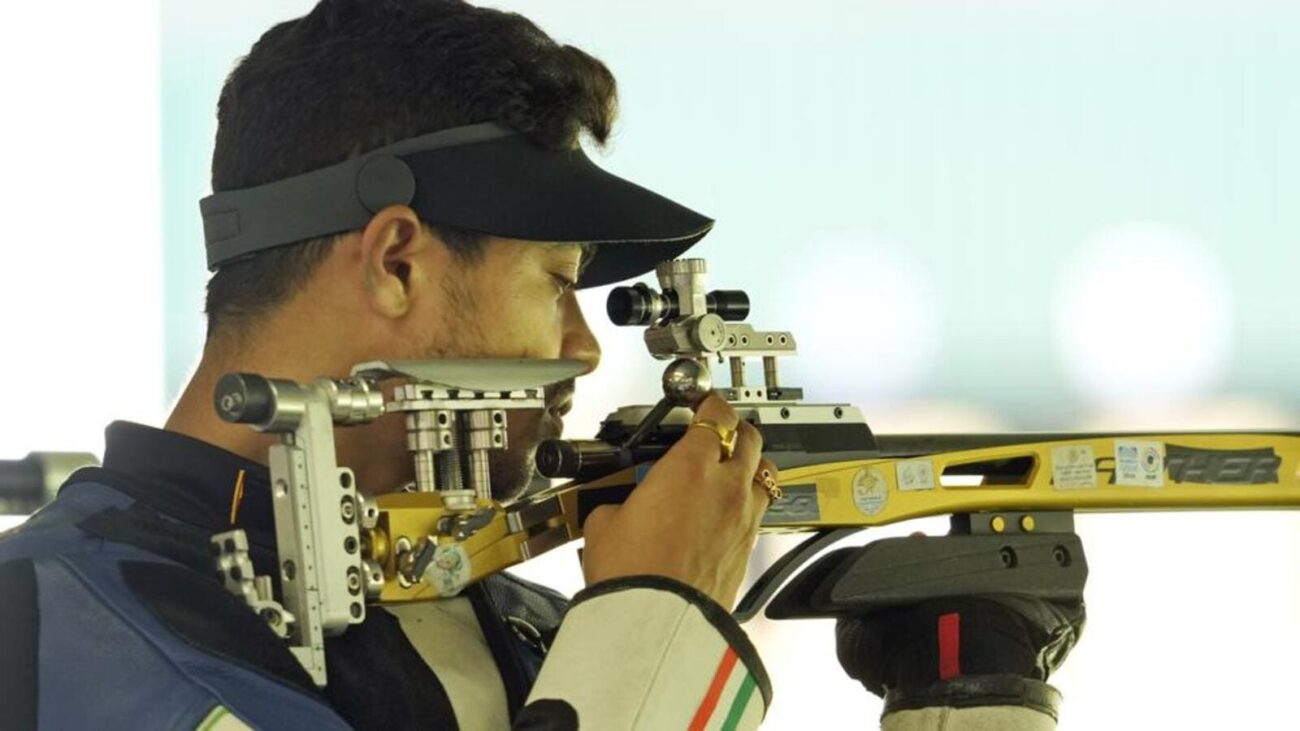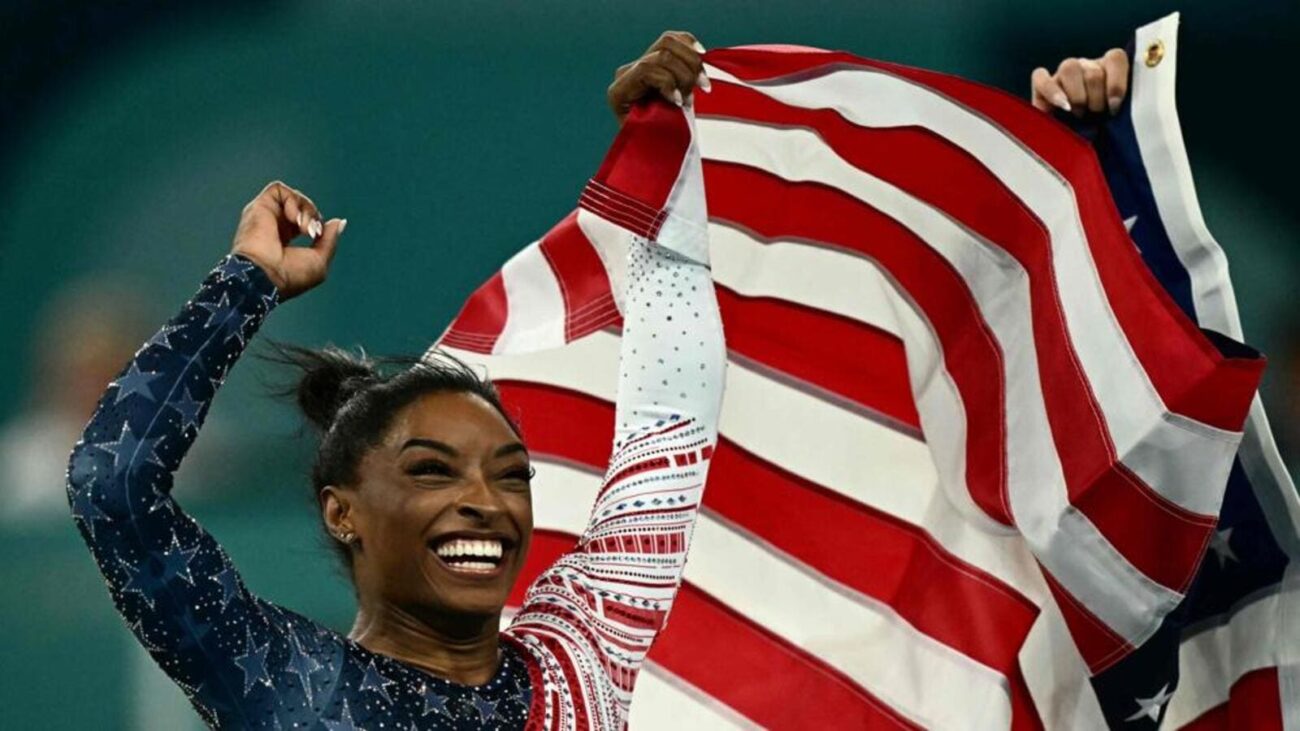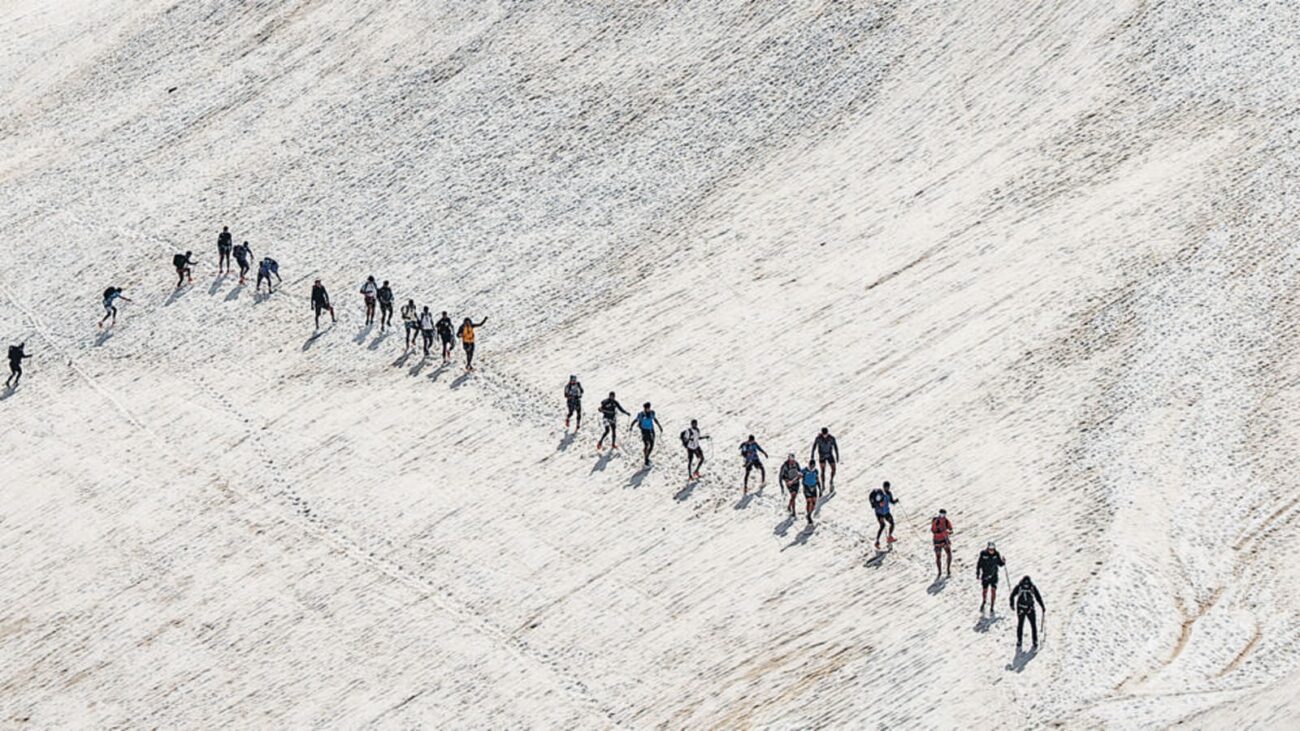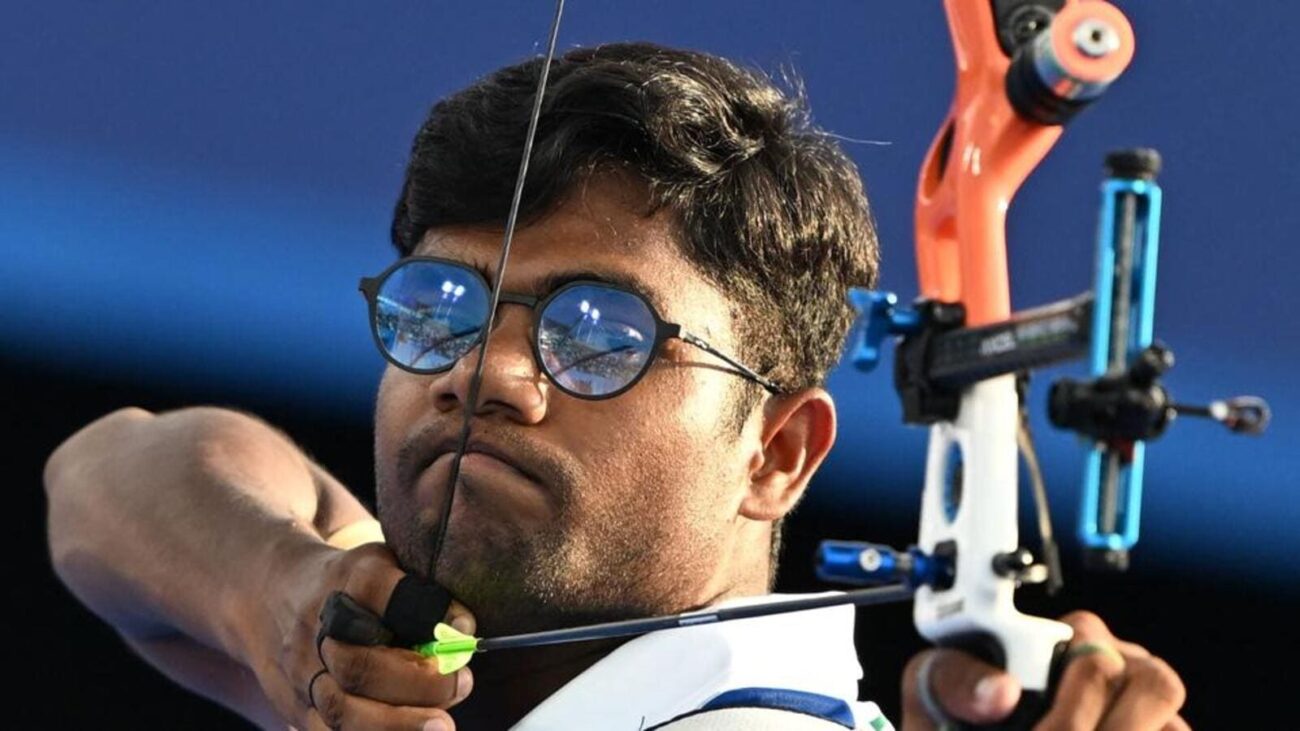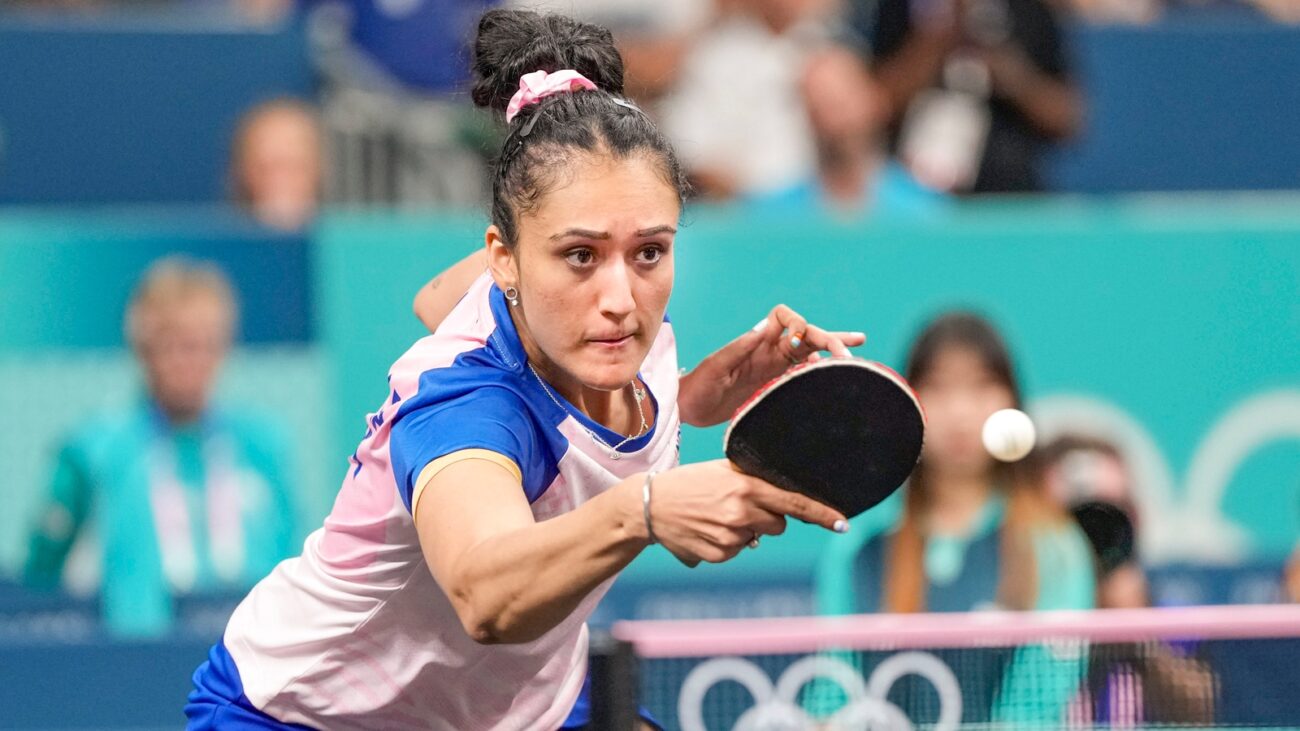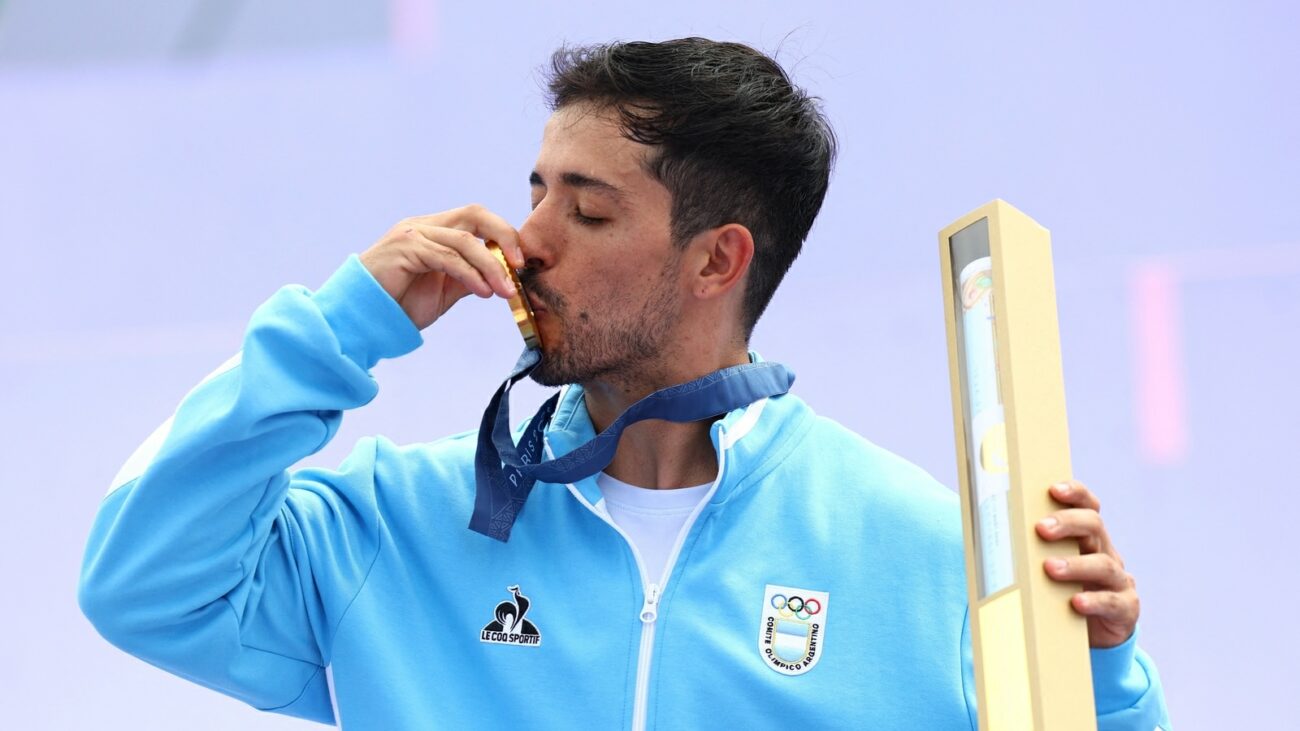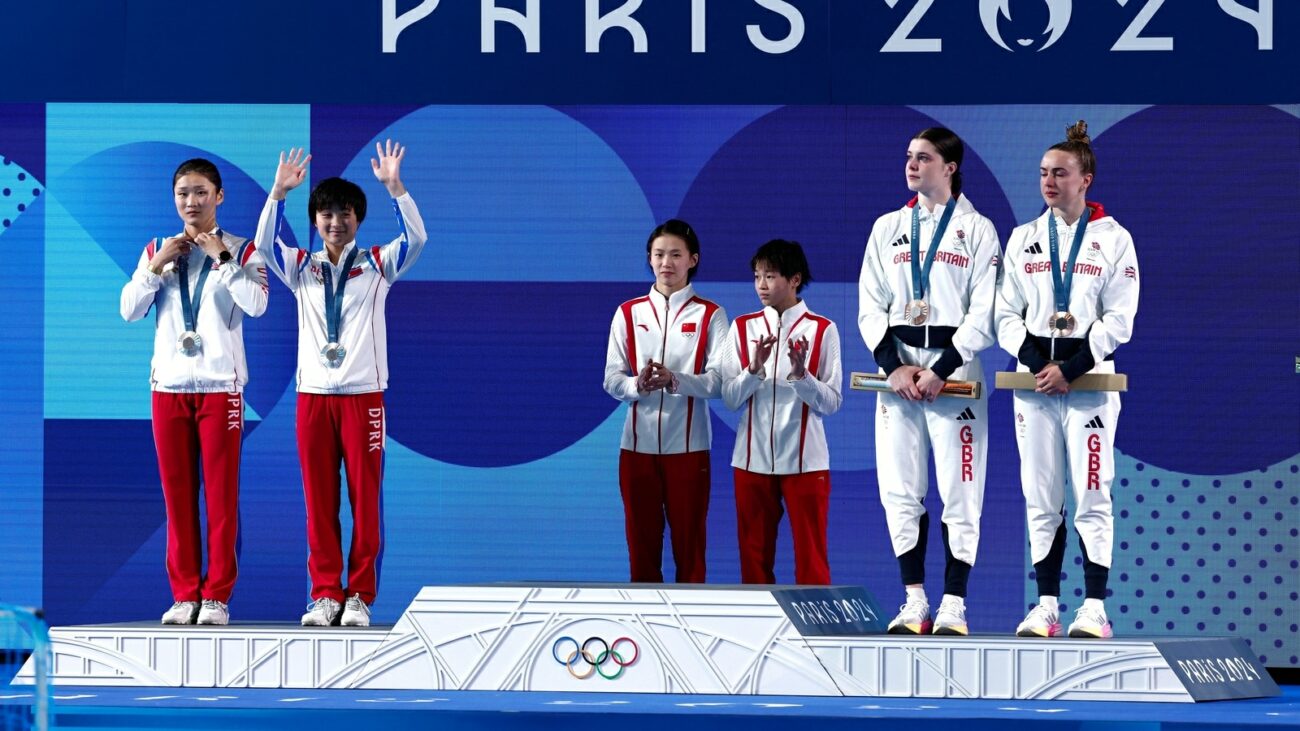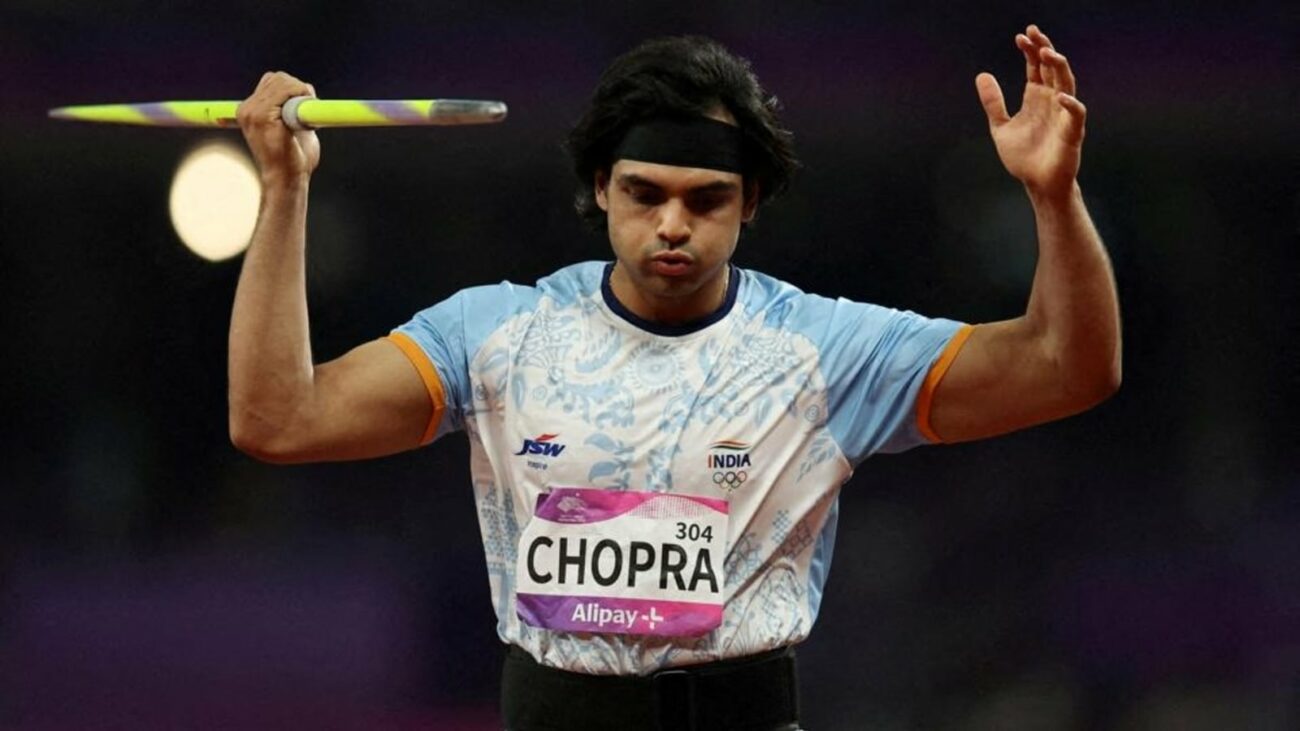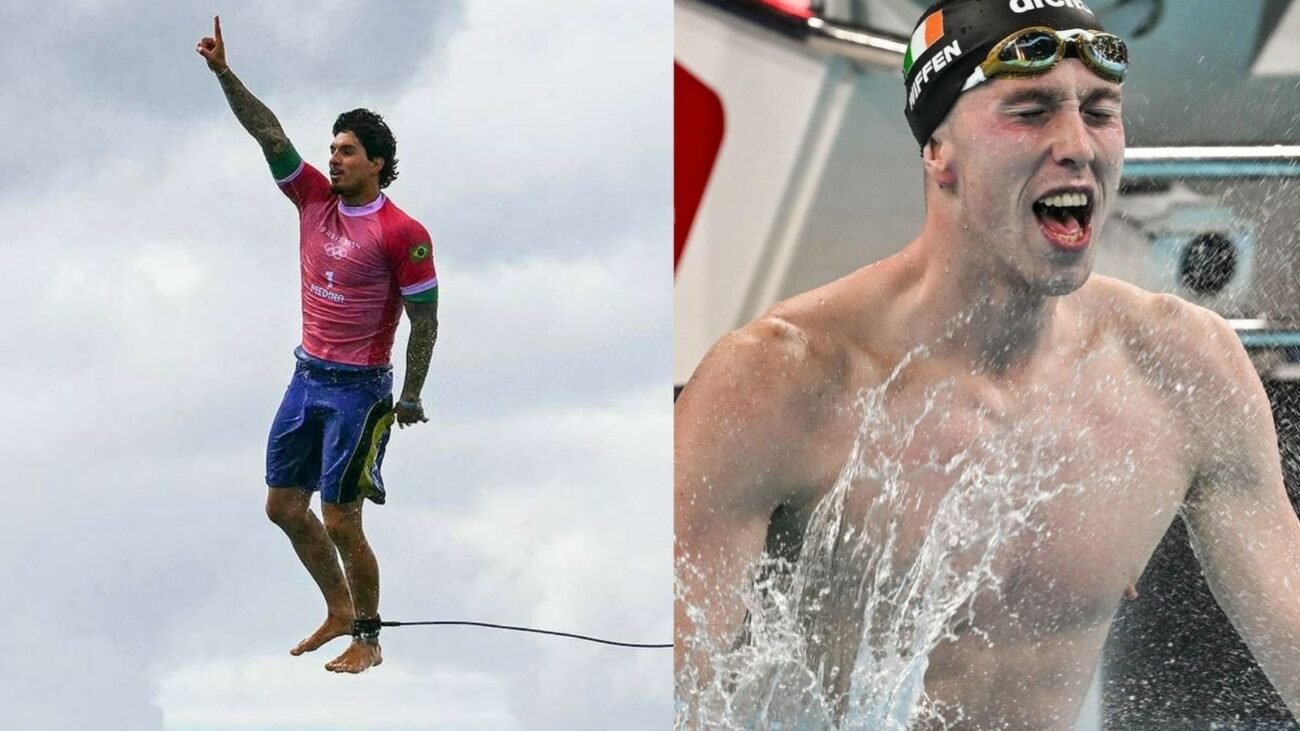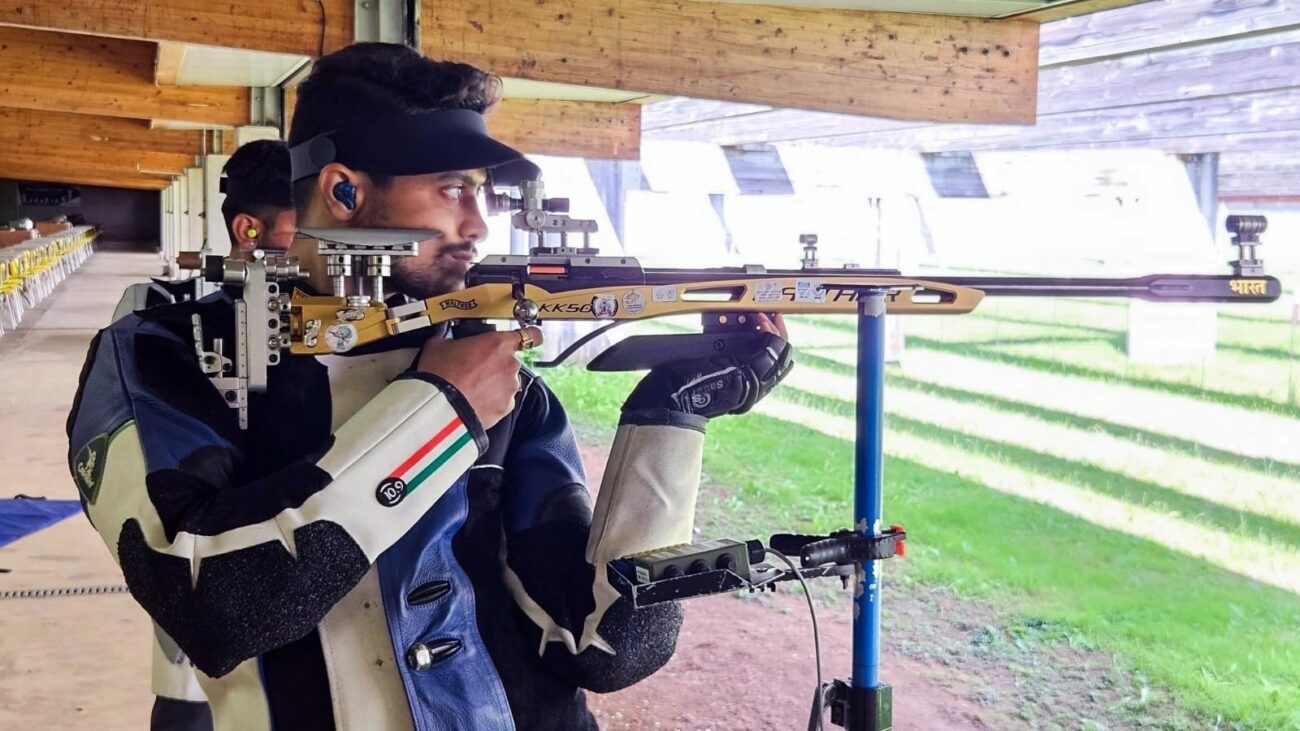Swapnil Kusale Qualifies for 50m Rifle Three Positions Final at Paris Olympics
Swapnil Kusale, a 28-year-old Indian shooter, has qualified for the final of the 50m rifle three positions event at the Paris Olympics. This is his second major final after the 2022 World Championships, where he finished fourth.
Kusale’s qualification score of 590 included 38 hits to the inner ring, demonstrating his accuracy and consistency. He will be hoping to break the jinx of finishing fourth in major competitions and secure a medal for India.
The rifle three positions event tests the endurance and technique of shooters, requiring them to shoot from kneeling, prone, and standing positions. Kusale has worked on his game since his disappointing performance at the World Championships and Asian Games, focusing on developing a strong mind and maintaining confidence.
His coach, Deepali Deshpande, praised Kusale’s accuracy and patience during the qualification round. She believes that his maturity and ability to handle pressure will serve him well in the final.
Kusale’s qualification for the final is a testament to his hard work and determination. He has come a long way since winning his first senior national title in 2015 and has consistently performed at the international level.

